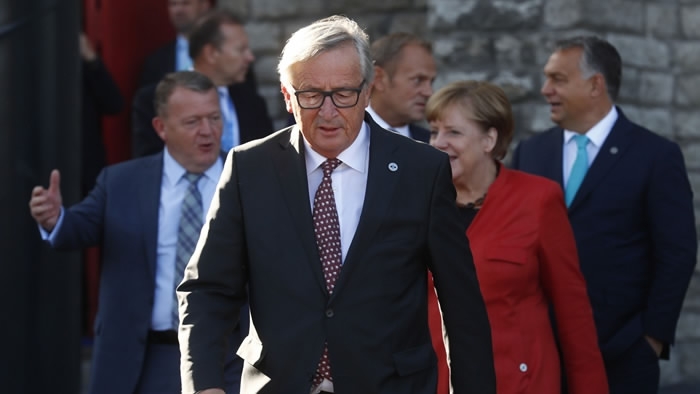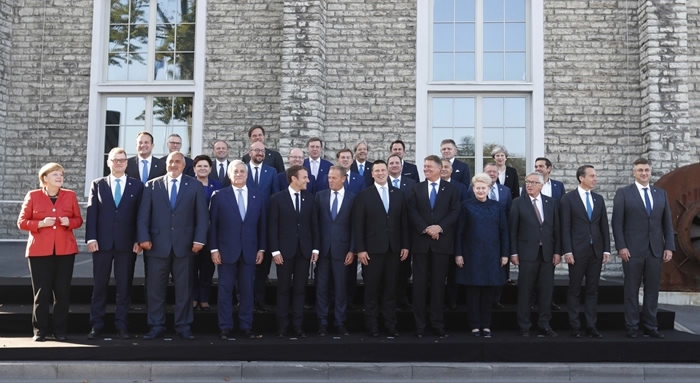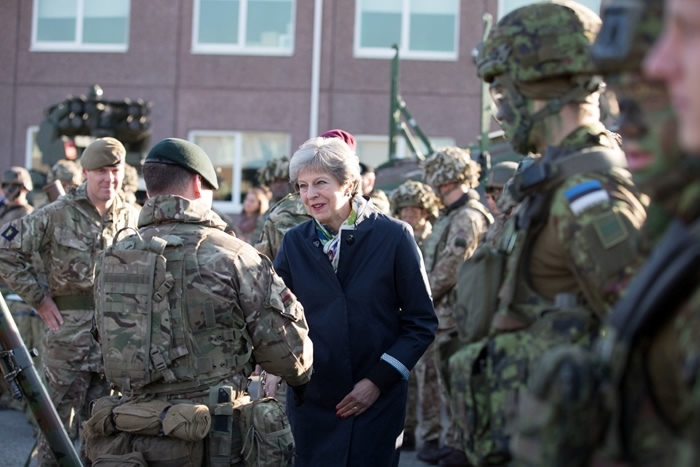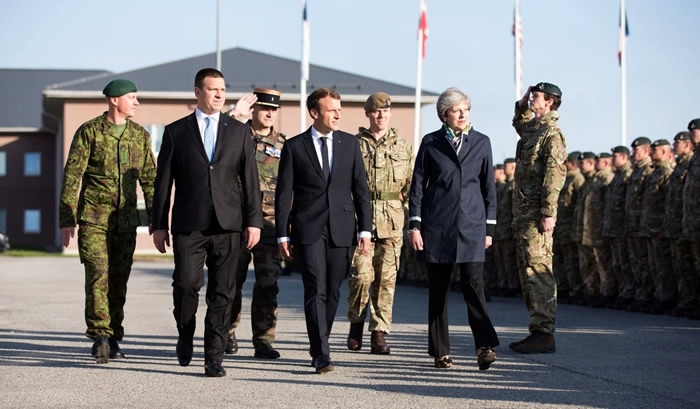
Politics
22:56, 29-Sep-2017
EU warns 'miracles' needed for Brexit progress
CGTN

The EU warned Friday that Britain needs a miracle to unlock the next phase of Brexit talks by next month as it hopes, as leaders debated the post-Brexit future at a summit in Estonia.
The talks in Tallinn were supposed to be devoted to the digital future of Europe, but Britain's departure from the bloc and discussions of French President Emmanuel Macron's plans to reboot the union hijacked the agenda.
The youthful Macron has given new impetus to a year of European soul-searching after the Brexit vote, even as the bloc tries to sort out the nitty-gritty of a divorce deal before Britain departs in March 2019.

EU leaders pose for a family photo during the EU Tallinn Digital Summit in Tallinn, Estonia, September 29, 2017. /Reuters Photo
EU leaders pose for a family photo during the EU Tallinn Digital Summit in Tallinn, Estonia, September 29, 2017. /Reuters Photo
European Commission chief Jean-Claude Juncker warned that there was next to no chance that the divorce talks would get far enough by the end of October to move on to discussions on a future trade deal, a crucial demand of Britain.
"By the end of October we will not have sufficient progress," Juncker said as he arrived for the second day of the summit. "I'm saying there will be no sufficient progress from now until October unless miracles will happen."
EU leaders are set to decide at a summit on October 19-20 whether there has been "sufficient progress" on three key issues: Britain's exit bill, the fate of Northern Ireland, and the rights of EU citizens living in Britain.
British Prime Minister Theresa May, however, insisted there had been "very good progress" on the rights of EU expatriates, following a major Brexit speech she gave in Florence, Italy, last week.

British Prime Minister Theresa May meets NATO troops in Tapa, Estonia, September 29, 2107. /Reuters Photo
British Prime Minister Theresa May meets NATO troops in Tapa, Estonia, September 29, 2107. /Reuters Photo
"That has been part of the negotiations that we've had, very good progress has been made, that was made clear by the statements made by David Davis and Michel Barnier yesterday," she said.
EU negotiator Barnier and his British counterpart Davis wrapped up a fourth round of Brexit negotiations in Brussels on Thursday, saying there had been progress following May's speech.
Britain 'unconditionally' committed to EU security
Britain is "unconditionally committed" to European security despite Brexit, May told British troops stationed with NATO in Estonia on Friday.
Visiting troops with Macron, May reiterated Britain's position that security cooperation is not up for debate in London's tense divorce negotiations with the EU as she seeks to improve the mood and unlock the next stage of talks.

British Prime Minister Theresa May (R, front), French President Emmanuel Macron (C, front) and Estonian Prime Minister Juri Ratas (L, front) inspect NATO troops in Tapa, Estonia, September 29, 2107. /Reuters Photo
British Prime Minister Theresa May (R, front), French President Emmanuel Macron (C, front) and Estonian Prime Minister Juri Ratas (L, front) inspect NATO troops in Tapa, Estonia, September 29, 2107. /Reuters Photo
She and Macron visited NATO forces posted just 100 kilometers from the Russian border.
"While we are leaving the EU, as I have said many times, we are not leaving Europe," May told forces at the Tapa base in northern Estonia. "The UK is unconditionally committed to maintaining European security and we will continue to offer aid and assistance to EU member states which are the victims of armed aggression, terrorism and natural or man-made disasters."
NATO has deployed four battle groups – around 4,000 troops – to Estonia, Lithuania, Latvia and Poland in recent years in response to growing Russian assertiveness in the region. The alliance has around 800 British and 300 French soldiers posted at the Tapa base.
Source(s): AFP

SITEMAP
Copyright © 2018 CGTN. Beijing ICP prepared NO.16065310-3
Copyright © 2018 CGTN. Beijing ICP prepared NO.16065310-3